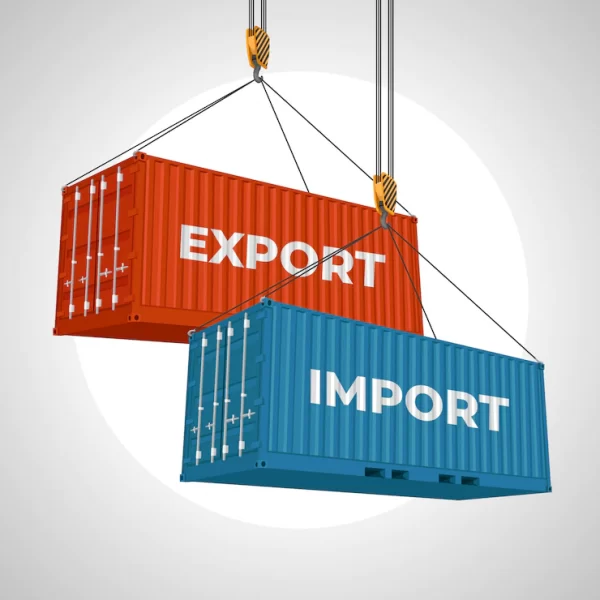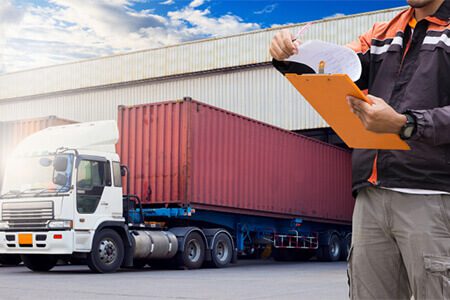Role of Customs in International Trade
Role of customs in international trade, as the first and most important authority that enforces trade laws and regulations, especially foreign trade, along with other economic enterprises such as banks and service centers such as insurance offices and transport companies, has a very effective role in the process of international trade and its development.
The policies that the customs of the world work towards are a set of commercial, economic, security policies, etc., which implement these policies with a different approach.
Today, the role and performance of customs in the world have undergone many changes and new tasks have been considered for it.
The reason for this is the upward growth of international trade, foreign investments, the increase of global agreements and other factors involved in the field of international trade.
Duties and Functions of Customs
In addition to being a source of revenue, Customs is a way to facilitate trade and protect the safety of society. This organization works to move people and goods internationally. Governments need an efficient customs organization to carry out their regulations in this area.
Customs Carries Out the Following Activities in line with Government Goals:
Collection of customs duties
Protecting the health conditions of the community
Application of foreign trade rules and regulations
Business policies
Dealing with smuggling and customs violations
Implementation of multiple conventions
Regional and international cooperation
According to the interactions that customs have with various departments of the government and ministries, it is considered a strong executive arm in the government body that implements a large part of the government’s policies, and for this reason, the government’s successes in the economic development sector are largely due to the undeniable role of customs and Its efficiency is relevant.
However, there are various issues that disrupt the efficiency of this organization. Things like constant changes in laws, high volume of information in this field and the increasing trend of international trade are constantly seen as an obstacle to the correct implementation of government policies by customs.
Customs in Electronic-Commerce
Due to the high speed and volume of commercial transactions, people tend to have their goods cleared from customs at the same speed as they trade and buy and transport their goods. In addition, with the formation of Electronic-Commerce, these expectations from customs have increased. On the other hand, the government demands the effective collection of revenues and the correct application of laws and regulations in this regard.
All these cases have caused most of the customs organizations in the world to agree with these changes and use information and communication technology and Electronic-Commerce by modernizing their internal system.
Today, with the use of e-commerce and information and communication in the field of customs, customs processes are carried out more accurately and quickly. While without these capabilities, trade, especially in the international field, and consequently customs activities, face a serious obstacle.
The most important effect that electronic customs bring for merchants has been speeding up activities such as certificates, clearance permits and its process. Also, this event helps to reduce costs, transfer speed, improve relations and mutual trust.
Restrictions of Traditional Customs in Export and Import
Border delay is one of the most important limitations and obstacles in using traditional customs procedures. This delay originates from usual paperwork, lack of clarity in customs rules and regulations, and slow risk assessment methods. In addition, in traditional customs, the goods themselves must be assessed directly. This process was very time-consuming, especially in the sea transportation sector where large quantities of goods are moved in this way. In addition, clearance of goods in the traditional customs and in both export and import fields required paperwork and filling out many forms. Also, in this field, we are faced with many decision-making and intervening organizations. The lack of coordination between these organizations, the absence of precise laws specifying the boundaries of responsibility, and the existence of many exceptions in these laws are also problematic.

Today, with the increase in the volume of international trade and the increase in the arrival of goods to global customs, the speed of customs operations and clearance of goods is more important. Controlling a large volume of goods entering the customs is very time-consuming. On the other hand, the remaining of this amount of goods in the customs may cause corruption or reduce its value.
All these cases and time-consuming customs processes are negative points of traditional customs, which should eventually move customs towards become electronic.
Advantages of Electronic Customs
With the advancement of technology, another view of business took place, which is a combination of business and technology and is called electronic customs.
This side of trade also caused major changes in the customs and clearance space and finally opened a new page under the title of electronic customs. The presence of the Internet in electronic business transactions minimizes the specialized procedures of customs clearance.
For goods whose delivery requires physical delivery, customs clearance is done more quickly and easily by sending electronic data and before delivering the goods. As a result, due to the high speed of data analysis, the possibility of leaving the cargo from customs increases without physical inspection.

Up To Sum
Considering the role of customs in trade and especially global and international trade, it is very important to go through the time-consuming process of traditional customs operations and enter the space of electronic customs. The restrictions faced by traders in the traditional customs can cause a lot of financial losses for them. Therefore, the updating of customs systems and the use of information and technology in carrying out relevant processes will prevent possible losses to a great extent.


